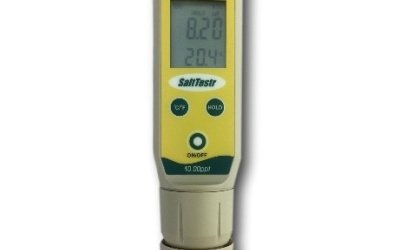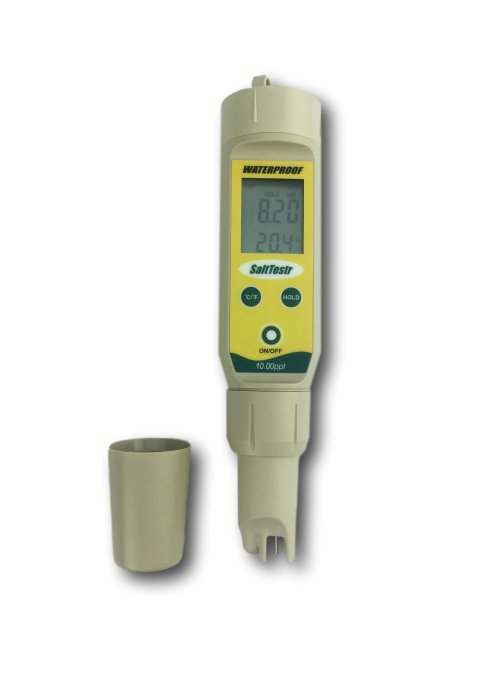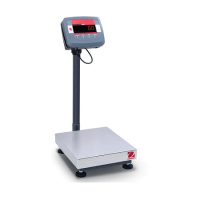Using a Salinity Meter To Measure A Saltwater Pool

The long hot days of summer are just around the corner. Now is the time to ensure your pool is in shape and ready for the season. If you’re lucky enough to have a saltwater pool, you know salt levels need to be maintained to keep the pool clean and safe.
In this article, we will explain how to use a salinity meter to take accurate measurements from a saltwater pool, explain the importance of doing it correctly and give some tips to keep your salinity meter in prime shape.
About Salinity Meters for Pools
Salinity is simply the concentration of dissolved salts within the water. Salinity meters for use in saltwater pools are usually small handheld or pocket-sized devices. They are designed to quickly, easily, and accurately measure pool salinity so you can spend more time enjoying the pool and less time worrying about salinity levels and corrective measures.
|
Instrument Choice Scientist Tip: 1 ppm = 0.001 ppt 1mg/L = 0.001g/L |
Most salinity meters use the electrical conductivity to measure the salinity of pool water. In a nutshell, electrical conductivity is the measure of ionic content of a solution. For a salinity meter to produce a salinity level estimate, it takes the electrical conductivity measurement and applies a conversion factor. See individual manufacturers' details for specific conversion factors.
The salinity level will display either as parts per million (ppm), parts per thousand (ppt), grams per litre (g/l), or milligrams per litre (mg/L).
Why Measure Saltwater Pool Salinity
Most saltwater pools will have a manufacturer specified salt concentration limit, usually set somewhere in the vicinity of 1500ppm – 4500 ppm. Regardless of whether or not the salt chlorinator in your pool has a built-in salt reading measurement, it is good practice to take a separate salinity test of your pool weekly.
Why?
If the salt levels are too low, the pool conditions could become unsanitary as there will not be enough chlorine produced.
If the salt levels are too high, this could damage the cell of the salt chlorinator or even damage other pool hardware. Damage of this magnitude will easily set you back more than the price of a salinity meter.
|
Instrument Choice Scientist Tip: Check with your pool manufacturer that the recommended salt levels won’t damage pool hardware and what is the lowest safe concentration they recommend! |
How to Measure Saltwater Pool Salinity
Using a handheld or pen meter makes measuring pool salinity almost too easy, the following steps are all it takes! Note; always check individual product instructions for specifics and tips.
- Turn on the device. If it is a multiparameter meter, ensure you measure salinity.
- Dip the electrode of the device into the pool water you wish to test. You can either measure directly from the pool/spa or take a sample using a clean container. Dip the electrode far enough into the water to ensure the electrode is covered.
- Give the meter a small stir to eliminate any bubbles caught on the electrode.
- Depending on the type of salinity meter you are using, wait for reading to stabilise or finish.
- Record the salinity reading.
- Rinse the electrode in distilled or deionised water to prevent any salt crystal build-up and keep it in fine working order.
Watch a video of one of the Instrument Choice Scientists measuring a pool water sample here.
|
Instrument Choice Scientist Tip: Temperature is an important factor in salinity calculation. The ideal temperature for measurement is 25°c. Check your salinity meter has automatic temperature compensation(ATC) for quick and accurate measurements. |
Examples of salinity meters on Instrument Choice
The Instrument Choice Scientists have put together great examples of salinity meters for use on home pools. With the selected product examples are some quick specifications to outline their differing abilities to help you select the best salinity meter for your application.
EC-SaltTestr11 - Waterproof Salt Tester
The EC-SaltTestr11 is designed to take fast measurements from your pool or spa. The device also has a direct temperature readout, saving you from needing a thermometer too.
The EC-SaltTestr11 has a ribbed, anti-roll design to ensure a firm grip. Should you slip, however, don’t fear! The device is IP67 rated waterproof and floats! So a little drop in the pool won't be the end of the world.
Specifications
ATC: Yes
Measures: Salinity, Temperature
Range: 0 to 10.00 ppt (0 to 10,000ppm)
Accuracy: ±1% of the full scale
StarterPen Salinity meter - IC-ST20S
Want economical, straightforward, and no-frills operation? The StarterPen IC-ST20S is small and simple to use and produces quick results.
The IP67 rated waterproof housing, study design, and quality construction will provide durable operation in even the toughest saltwater environments.
Specifications
ATC: Yes
Measures: Salinity, Temperature
Range: 0.0-80.0 ppt (0 to 80,000 ppm)
Accuracy: ±1.5% of the full scale
Ultrapen Pt1 Conductivity, Salinity, and Tds Meter
Designed for single-handed use, the Ultrapen PT1 is a multiparameter device that delivers highly accurate salinity, conductivity, and TDS results in a matter of seconds.
The device is IP67 rated and is rugged, reliable, shock-resistant with fully encapsulated electronics and a body constructed of aluminium. Perfect for at home or professional pool testing.
Specifications
ATC: Yes
Measures: Salinity, Temperature, Conductivity, TDS
Range: 0.0010 - 9.999 ppt (0 to 9999ppm)
Accuracy: ± 1% of reading
Conclusion
Measuring the salinity of your home pool or spa is an easy way to ensure the salt levels are right where they need to be. Many homeowners with pools are turning to salinity meters to help ensure the salinity levels of their pool is high enough to keep the pool clean but low enough as to not damage any equipment. A salinity meter is a smart investment, helping to make pool maintenance easy and perhaps help to save some money in the long run.
View our full range of pool and spa salinity meters here.
Need help finding a salinity meter to suit your application? Want more information on any of the above products? Contact one of the Instrument Choice Scientists. We’re here to help!
Call 1300 737 871 or email [email protected].
Also interesting
OHAUS has positioned itself as one of the most outstanding manufacturers of scales and balances in the world. The business produces an extensive range of scales to meet almost every application from small portable scales to laboratory precision balances right up to industrial and trade approved scales and balances.

With almost 100 years of experience producing weighing devices, OHAUS has plenty of experience in the laboratory and scientific instrument industry. In more recent years, OHAUS has decided to build on this expertise and launch new ranges of products, including an extensive range of pH meters.
This article reviews three main types of pH meters manufactured by OHAUS that are relevant to a wide range of industries and professions. Including pen testers for measurements on the go, to handheld meters for fieldwork and professional laboratory benchtop meters.

